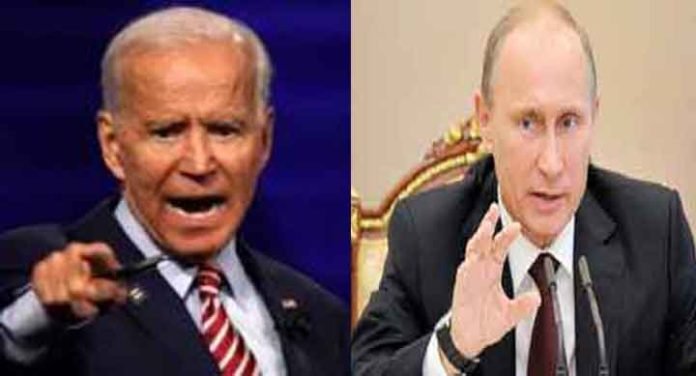INVC NEWS
Moscow : On Friday, Russian President Vladimir Putin will meet with iranian president masoud pezeshkian in a highly anticipated bilateral discussion. The meeting is set to take place on the sidelines of an international event in Turkmenistan, garnering significant attention due to the escalating tensions between Israel and Iran. This encounter is particularly noteworthy, as it highlights the growing cooperation between Russia and Iran, which were once fierce rivals during the Soviet era.
Over the past few decades, the geopolitical landscape has shifted, bringing the two nations closer together. Their newfound alliance is largely a result of shared interests and mutual opposition to Western sanctions. As both Russia and Iran face mounting economic and political isolation from the West, their partnership has grown stronger, positioning them as key players in several critical regions, including the Middle East.
Western Sanctions: A Catalyst for Russia-Iran Cooperation
One of the primary reasons for the strengthening bond between Russia and Iran is the economic pressure both countries are facing due to Western sanctions. For Iran, which has long been under American sanctions, the need for a powerful ally capable of supplying weapons and technological support is crucial. Russia, in turn, has found itself increasingly isolated on the global stage due to its ongoing invasion of Ukraine. The war has led to widespread condemnation and sanctions from the international community, pushing Russia to seek out new alliances and trading partners.
Iran has emerged as a strong partner for Russia, particularly in terms of military cooperation. In recent years, Russia has become the third-largest supplier of weapons to Iran, helping to bolster Tehran’s defense capabilities in the face of growing hostility from Israel and the West. This cooperation extends beyond the supply of arms; Iran has also provided Russia with drones, which have been used extensively in the ongoing Russia-Ukraine conflict. The two countries have struck several major arms deals, further solidifying their alliance.
Shared Interests in Syria: A Strategic Alliance
Another factor driving the Russia-Iran partnership is their shared strategic interests in Syria. Both nations have played a critical role in supporting the Syrian government under President Bashar al-Assad, which has been battling opposition forces and extremist groups for over a decade. Russia’s military intervention in Syria has helped stabilize the Assad regime, while Iran has provided financial and logistical support to maintain the government’s hold on power.
Syria has also been a battleground for Israeli-Iranian hostilities, with Israel frequently launching airstrikes against Iranian military installations and proxy forces in the region. Despite this, Iran has remained steadfast in its support for the Syrian government, viewing the conflict as essential to its broader regional strategy. Russia, too, sees Syria as a key ally in the Middle East and has worked closely with Iran to ensure the regime’s survival. This convergence of interests has brought the two countries closer, forging a strong alliance that extends beyond Syria.
Rising Tensions Between Israel and Iran: The Geopolitical Context
The meeting between Putin and pezeshkian comes at a time of heightened tensions between Israel and Iran. In recent weeks, the situation has escalated, with reports of Iranian airstrikes targeting Israeli assets. Israel, in response, has threatened retaliatory action, raising fears of a full-scale conflict in the region. The United States has also weighed in, expressing its unwavering support for Israel in the event of further hostilities.
In this context, Iran’s relationship with Russia becomes even more critical. Tehran is keen to ensure that it has a reliable source of military equipment and support in the event of a war with Israel. The alliance with Russia not only provides Iran with access to advanced weaponry but also gives it a powerful partner on the global stage, capable of influencing key international bodies such as the United Nations Security Council.
Russia, for its part, stands to benefit from its relationship with Iran by maintaining its influence in the Middle East and countering the growing presence of Western powers in the region. The two countries’ collaboration on issues such as Syria and arms deals positions them as key players in the broader geopolitical struggle for control of the Middle East.
Iran’s Strategic Importance to Russia Amid the Ukraine War
Iran’s importance to Russia extends beyond the Middle East. In the context of the ongoing war in Ukraine, Russia has increasingly relied on Iran for military support. Iranian drones have been a significant asset to the Russian military, providing critical intelligence and reconnaissance capabilities in the face of Ukrainian resistance.
As the war drags on, Russia finds itself in need of continued military supplies and technological assistance, which Iran is well-positioned to provide. This has led to a deepening of the military partnership between the two nations, with both sides benefiting from the exchange of weapons and resources.
Additionally, with both countries facing international sanctions, they have developed alternative trade routes and economic partnerships to circumvent the restrictions imposed by the West. This cooperation has allowed them to mitigate some of the economic damage caused by the sanctions, further solidifying their alliance.
The Significance of the Putin-pezeshkian Meeting
Given the current geopolitical climate, the upcoming meeting between Putin and pezeshkian carries significant weight. The two leaders are expected to discuss a range of issues, including the situation in Syria, the growing tensions with Israel, and the ongoing conflict in Ukraine. The meeting is also likely to focus on expanding military cooperation between the two countries, with further arms deals and technological exchanges on the table.
The timing of the meeting is particularly important, as it comes at a moment when both Russia and Iran are facing increased pressure from the West. For Iran, strengthening its relationship with Russia is crucial to ensuring its security in the event of a conflict with Israel. For Russia, maintaining a strong partnership with Iran is essential to its broader strategy of countering Western influence in the Middle East and beyond.















